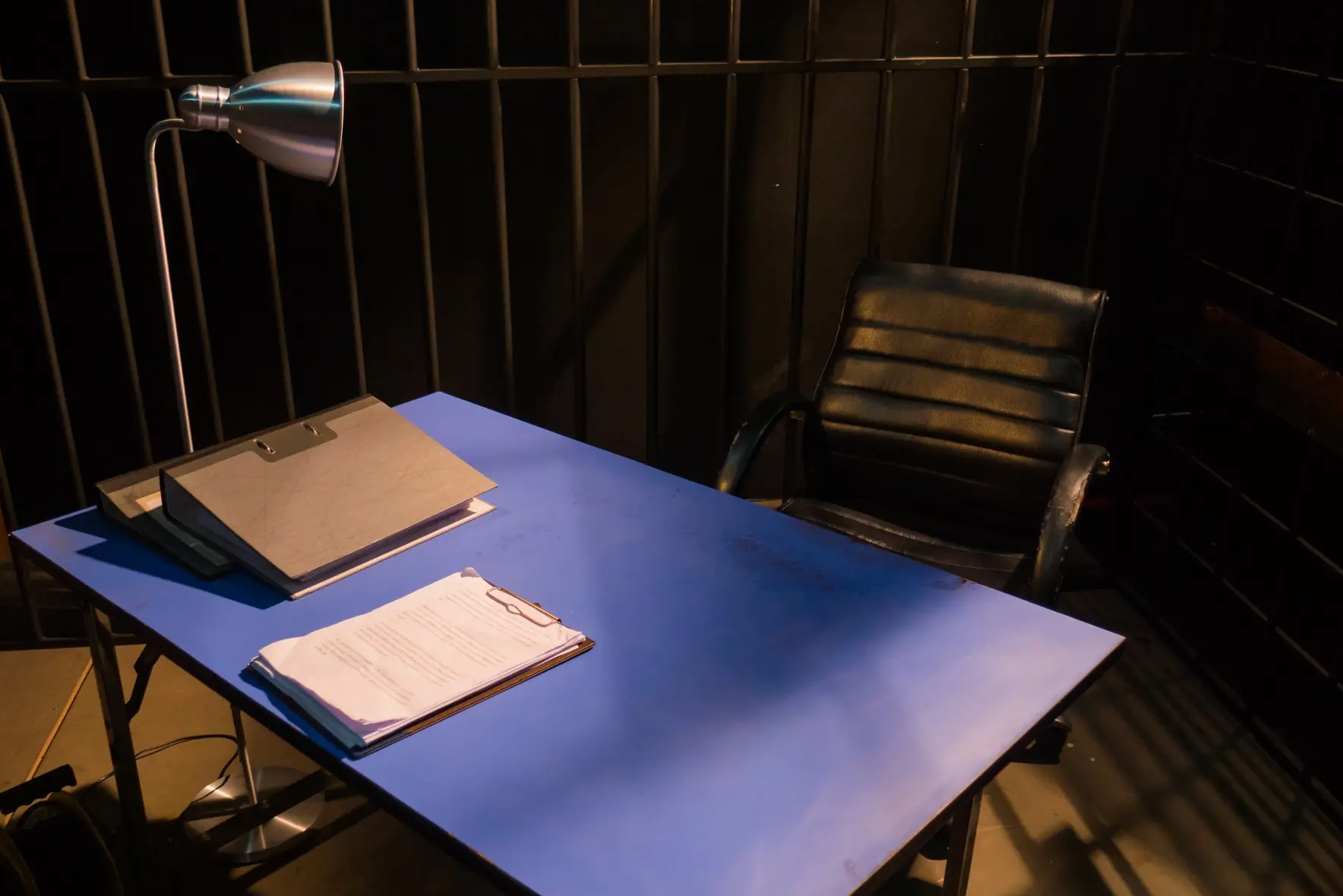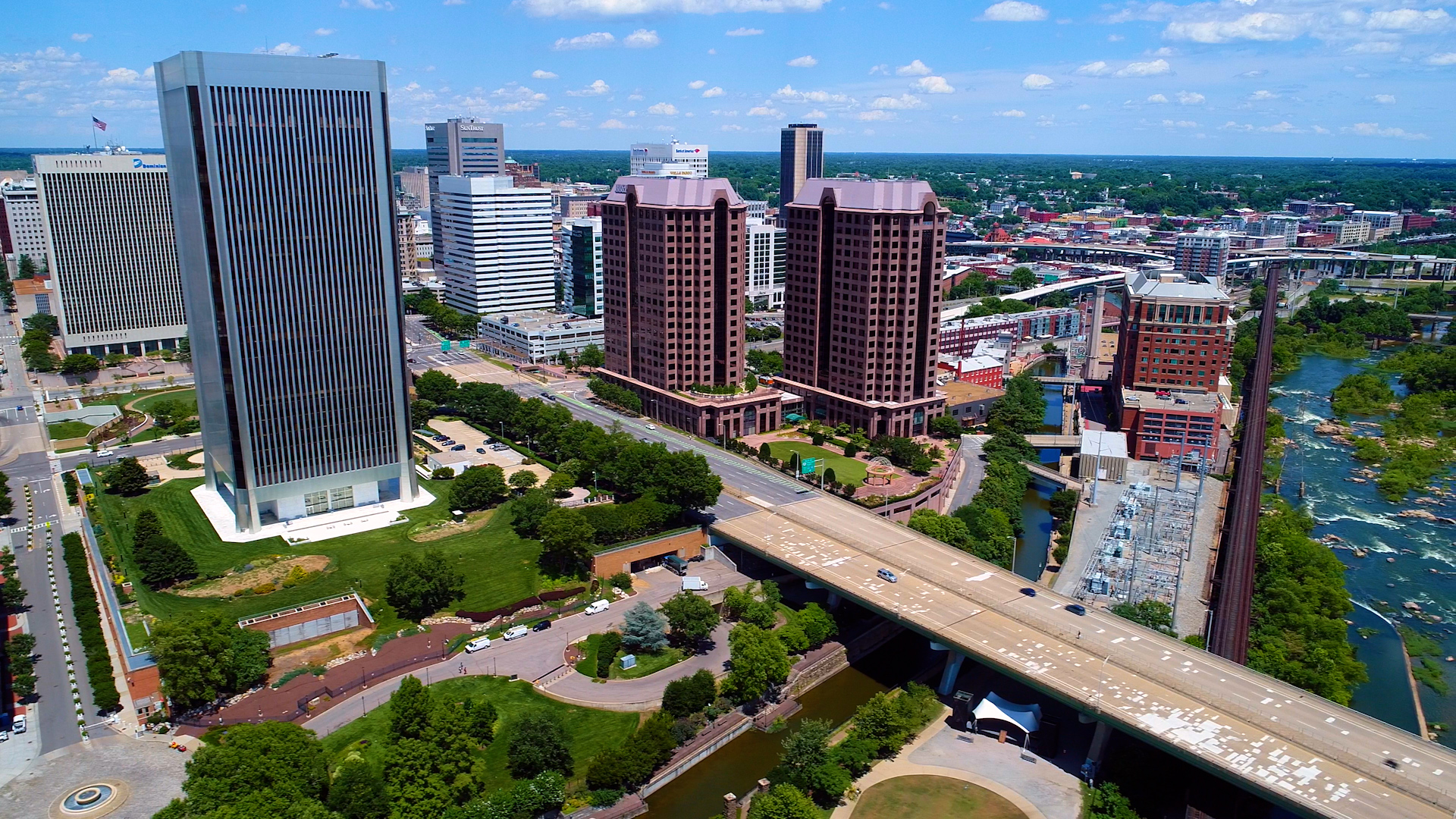Watch the Wilder Symposium on YouTube
At this year's Wilder Symposium, hosted by the L. Douglas Wilder School of Government and Public Affairs at Virginia Commonwealth University, an unsettling question echoed throughout the evening: Is American democracy in trouble? Set against the backdrop of the Singleton Center for the Performing Arts, the symposium was a sobering reflection on leadership, electoral integrity, and the deep divisions in the country.
L. Douglas Wilder, the nation’s first elected African American governor and the event’s namesake, wasted no time in setting the tone. The theme, "Elections 2024: The Importance of Listening to the People," felt particularly urgent in light of the current political climate.
Governor Wilder opened with his characteristic frankness, a reminder of his decades of political service. “The people are always eager to learn,” Wilder began. “But what difference does it make if you get elected if you're not listening to them? What have you done? What have you tried to do?”
As the evening unfolded, the distinguished panel of speakers—Dr. Bob Holsworth, founding director of the Wilder School and a renowned political analyst, and Dr. Larry Sabato, a nationally respected political commentator and founder of the University of Virginia’s Center for Politics—added their voices to Wilder’s pointed critiques. Dr. Susan Gooden, dean of the Wilder School, and Dr. Robyn McDougle, director of the Commonwealth Poll, provided crucial insights into the electorate’s concerns, grounding the discussion in both historical context and recent data.
PHOTOS: View the photo album on our Flickr page
Each panelist offered a unique perspective on the state of American politics, but together they painted a picture of a nation at a crossroads—where leadership, integrity, and public trust are on shaky ground.
Dean Gooden sounds the alarm on voting rights
The urgency of Wilder’s remarks was amplified by Dr. Susan Gooden, dean of the Wilder School. Gooden, an expert on public policy and equity, zeroed in on the mechanics of voting—something often overlooked in discussions about democracy.
“To listen to the people, we must first ensure their votes are counted,” Gooden warned. She detailed the growing number of voting restrictions in battleground states like Georgia and North Carolina, where new rules are making it harder for people—especially in marginalized communities—to vote.
"These changes are not about ensuring fairness," Gooden noted. "They’re about restricting access." Her focus on mail-in ballots, voter ID laws, and the removal of drop boxes wasn’t just policy wonkery—it was a red flag for anyone concerned about the integrity of the upcoming election.
Gooden also pointed to the fact that one-third of election officials have turned over since 2020. Combine that with stricter voting rules, and we’re left with a recipe for potential chaos come November. “We’re dealing with a combination of new rules and new people,” she explained, “which could lead to significant uncertainty in how votes are counted.”
The threat to voting rights isn’t new, but the way it’s playing out in this election could make the difference between a functioning democracy and something far more precarious.
Sabato and Holsworth: "eerily similar to 1968"
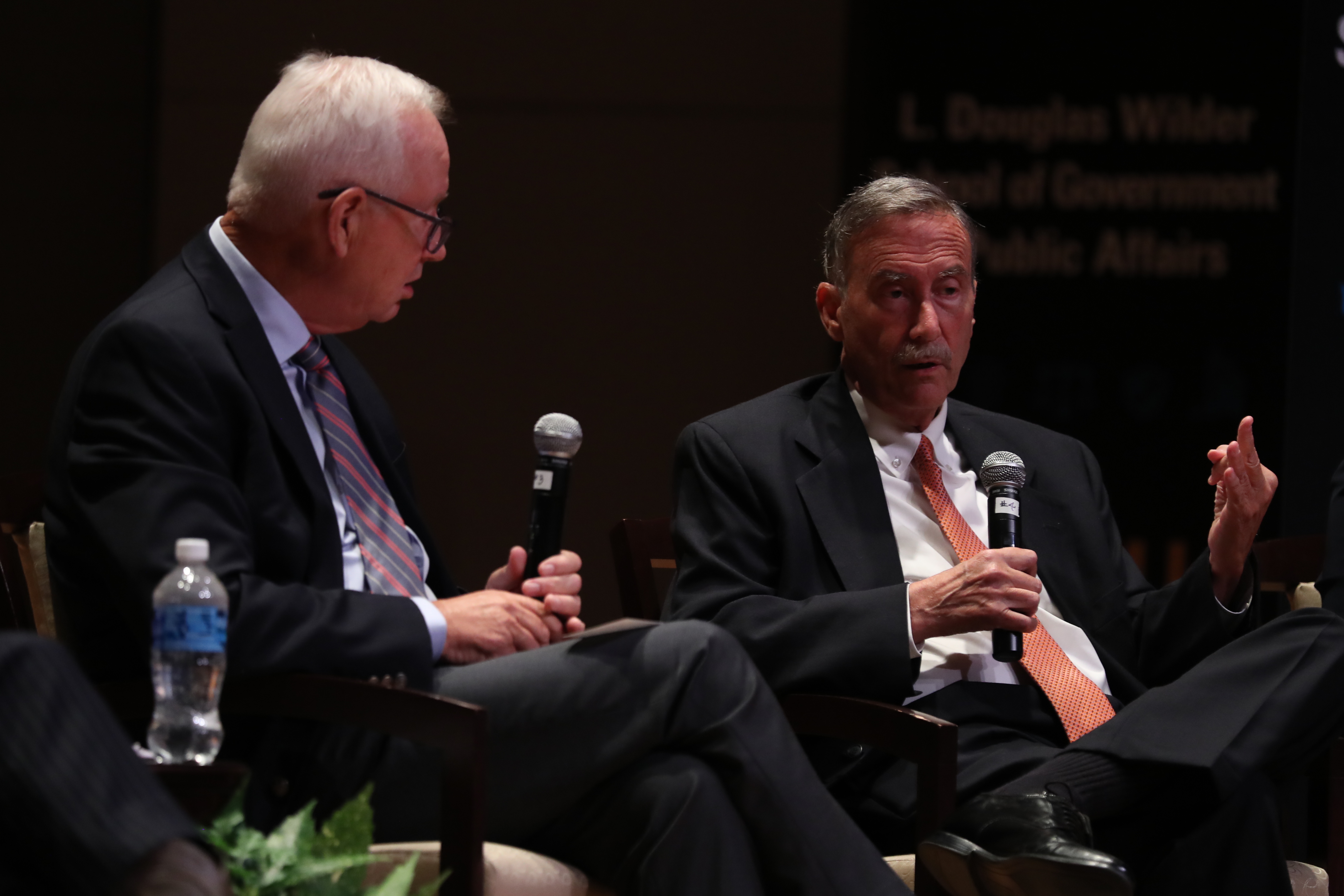
“We’re in unprecedented territory,” Sabato said, his tone departing from its general levity. “The parallels to 1968 are impossible to ignore.”
In 1968, the country was reeling from the assassinations of Martin Luther King Jr. and Robert Kennedy, widespread protests, and a divisive war in Vietnam. Sabato reminded the audience that this year’s election—much like that one—could push the country to a breaking point. His most troubling insight? The election could come down to just seven battleground states.
“Forty-three states are simply watching to see who wins in the other seven,” Sabato noted, describing this reality as “deeply disturbing.” If elections are meant to be the cornerstone of democracy, then relying on the decisions of a small number of states raises significant concerns about fairness and representation.
Dr. Bob Holsworth shifted the conversation from the national stage to the local level, honing in on the changing political dynamics within Virginia. He highlighted how the state's evolving electorate, particularly among independents, could play a pivotal role in upcoming elections.
"We’ve seen a shift in the electorate here," Holsworth said. "The real question is how these independents will vote."
Holsworth observed that while Virginia has been leaning blue in recent years, Governor Glenn Youngkin’s popularity among independents presents a complicated picture. Though Youngkin’s approval rating remains relatively high, his efforts to sway voters in the 2023 House of Delegates and Senate races fell short. “Youngkin put a lot of money into those races,” Holsworth pointed out, “but the Democrats still secured majorities in both chambers.”
The outcome suggests that popularity doesn’t necessarily translate into electoral success, a lesson that both parties should heed as they prepare for 2024.
What the polls are telling us
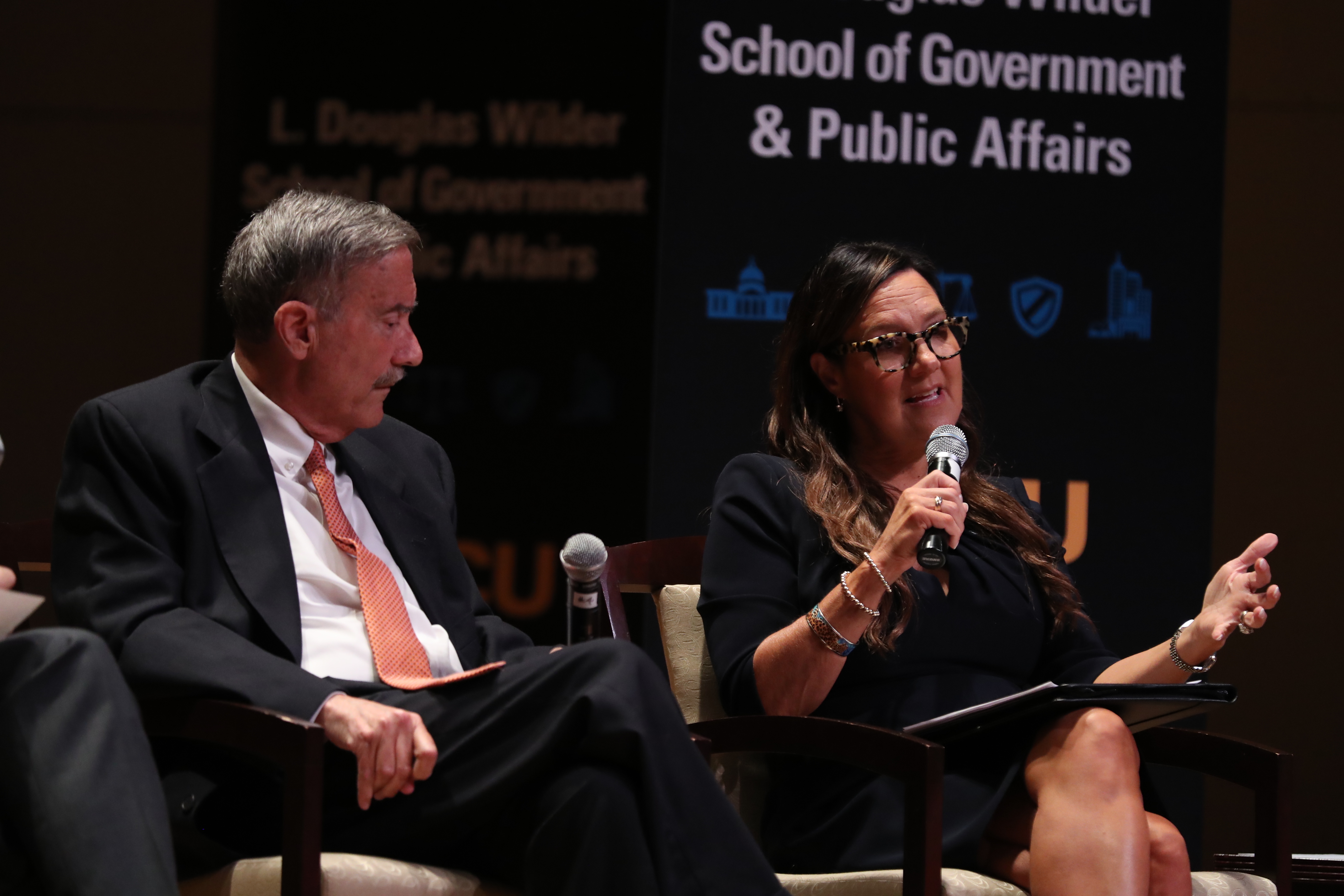
"Vice President Harris has gained significant ground with independents," McDougle explained. In July, Donald Trump had a slight lead, but Harris has since surged, particularly among younger, female independents. This shift is a key factor heading into the election, as independents now make up a large portion of the electorate.
But McDougle also warned that 22% of independents remain undecided, making them a wildcard in a race that’s already expected to be close.
VCU and free speech: the local angle
The conversation took a turn when Governor Wilder and Dr. Holsworth addressed a more local controversy—the handling of student protests at VCU. Earlier this year, riot police were called in to break up a peaceful protest, a decision that sparked outrage across campus.
“The message that sends is, ‘This is not your university,’” Wilder said. “We must support openness and the right to protest, especially in an academic setting.”
Holsworth echoed Wilder’s sentiment, describing the university’s response as “an overreach.” “Students need to feel heard,” Holsworth emphasized. “What happened at VCU was unnecessary, and it goes against the very principles of free speech we should be protecting.”
The issue underscored one of the Wilder Symposium’s larger themes: democracy isn’t just about elections—it’s about maintaining spaces where people can express their views without fear of retaliation.
Final thoughts: the importance of cccountability
As the evening drew to a close, Governor Wilder delivered a final message that underscored the weight of the night’s discussion. “Politicians do what is demanded of them, not asked,” Wilder said. “If they don’t listen, they should be voted out.”
It was a fitting conclusion to a night that tackled some of the most pressing issues facing the country. In a year that feels more fragile than ever, the Wilder Symposium was a reminder that democracy doesn’t just happen—it has to be fought for.
And come November, it’s the voters who will decide just how much they’re willing to fight.
Related media coverage
Wilder says he understands Harris' decision not to emphasize race
VCU annual Wilder Symposium emphasizes importance of voting
Leaders, officials and analysts share voting information during symposium at VCU
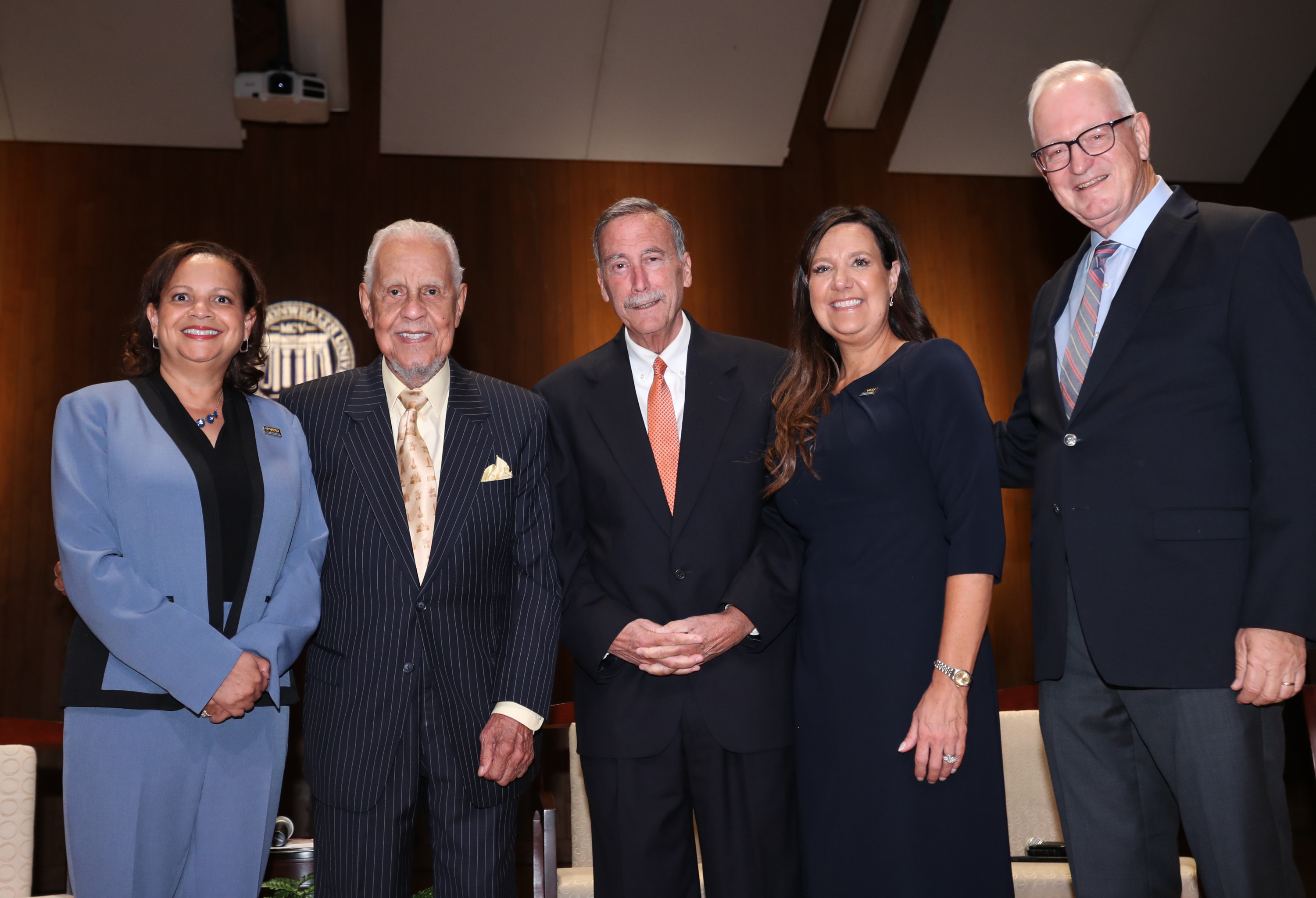
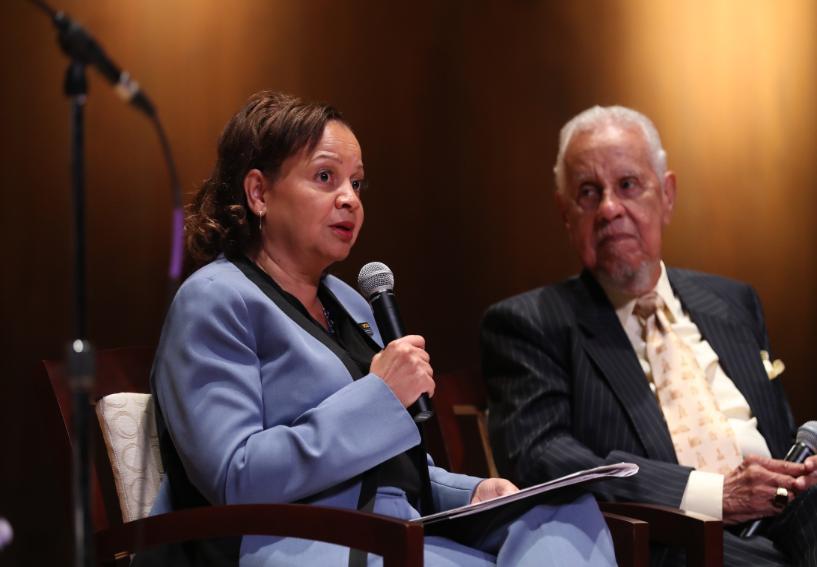
.jpg)
